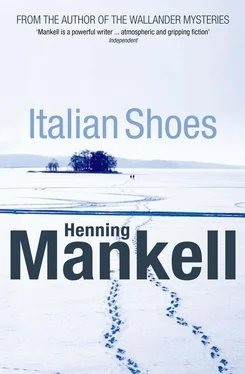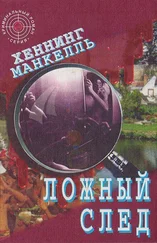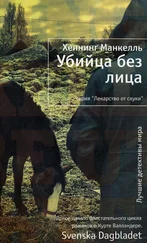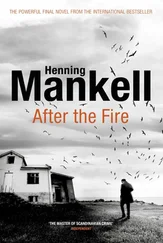I waited for it to get light before starting off for home over the ice. I had no idea how I was going to adjust my life in order to cope with everything that had happened.
Standing alone out there on the pier, in the bitterly cold wind, I started to cry. Every single door inside me was swinging back and forth in the wind, which seemed to be getting stronger all the time.
It was the beginning of April before the thaw came. This was the longest the sea had been frozen during all the years I had lived here. I could still walk over the channels to the mainland at the end of March.
Jansson came by in his hydrocopter every third day, and reported on the condition of the ice. He thought he could recall a winter in the 1960s when the ice had remained for as long as this in the outer archipelago.
The white-painted landscape was dazzling when I climbed up the hill behind the house and gazed towards the horizon. Sometimes I hung Grandfather’s ice prods round my neck, collected an old ski pole and went for wintry walks around the skerries and rocks where the old herring-fishing grounds used to be: my grandfather and his father before him used to land catches that nobody nowadays could even dream of. I walked around the skerries where nothing grows and remembered how I used to row out to them as a child. You could find all kinds of remarkable flotsam and jetsam hidden in the crevices. I once discovered a doll’s head, and on another occasion a watertight box containing several 78 rpm gramophone records. My grandfather asked somebody who knew about such things, and heard that they were German songs from the war that had ended when I was a little boy. I didn’t know where the records were now. On another rocky islet I had found a large waterproof logbook that some raving or desperate sea captain had thrown into the sea. It had been from a cargo ship taking timber from the sawmills of northern Sweden to Ireland, where it was used for housebuilding. The vessel had weighed 3,000 tons and was called Flanagan . Nobody could say how or why the logbook had ended up in the water. Grandfather had spoken to a retired schoolteacher who used to spend his summers on Lönö, in what used to be the cottage of a former pilot, Grundström. He had translated the text, but there was nothing unusual noted in the logbook on the day it had been thrown into the sea. I can still remember the date: 9 May 1947. The last entry had been a note about ‘greasing the anchor gear as soon as possible’. Then nothing more. The logbook was incomplete, but had been thrown into the sea. It had been on its way from Kubikenborg with a cargo of timber for Belfast. The weather was fine, the sea almost dead calm, and a note made that morning said there was a south-easterly breeze blowing at one metre per second.
As the long winter progressed, I often thought about that logbook. It seemed to me that my life after the catastrophic error was a bit like throwing my unfinished logbook into the sea and then sailing on without leaving any trace behind. The insignificant notebook I was now keeping, recording such things as vanished waxwings and the ill health of my pets, wasn’t even of any interest to me. I made notes because it was a daily reminder of the fact that I was living a life of no substance. I wrote about waxwings to confirm the existence of a life in a vacuum.
I suddenly started to think about my parents. I would often wake up during the night with my head full of remarkable memories, long since forgotten, that had returned in my dreams. I could picture my father on his knees, lining up his tin soldiers and moving them in a reconstruction of Waterloo, or Narva. My mother was generally sitting in her armchair, watching him with an expression of great tenderness — his games always took place in absolute silence: she just sat there.
The march of the tin soldiers ensured that there would be moments of genuine peace in our home, albeit only occasionally. In my dreams I relived my fear of the arguments that sometimes flared up. My mother would be crying, and my father making a feeble attempt to show his anger by cursing the restaurant owner who employed him. I was slowly dreaming my way back to my roots. I had the feeling that I was walking along with a pickaxe in my hand, searching the ground for something that had gone missing.
Even so, it was a winter characterised by things that had been reclaimed. Harriet had presented me with a daughter, and Agnes didn’t hate me.
It was also a winter of letters. I wrote, and I received answers. For the first time in the twelve years I had lived on the island, there was now a point in Jansson’s visits. He still regarded me as his doctor, and demanded consultations for his imagined pains. But now he brought me mail, and sometimes I would hand him a reply.
I wrote my first letter the very day I got back home. I had walked over the ice in the grey light of dawn. My animals gave the impression of being starved, despite the fact that I had left more than enough food to feed them properly. When I was satisfied that they had eaten as much as they wanted, I sat down at the kitchen table and wrote a letter to Agnes.
‘I apologise for leaving so abruptly. I suppose I was overwhelmed by meeting the person who had suffered so much because of me. There was a lot I would have liked to talk to you about, and you might well have had a lot of questions for me. I am now back again on my island. The sea all around me is still frozen hard. I hope that my sudden departure will not result in our losing contact with each other.’
I didn’t change a single word. The following day I asked Jansson to post it for me. He didn’t seem to have noticed that I’d been away. He was curious about the letter, of course, but said nothing. He didn’t even have any pains that day.
In the evening I started writing a letter to Harriet and Louise, despite the fact that I’d not had a reply to my previous one. It became far too long, and it had become clear that I couldn’t write a letter addressed to both of them: I didn’t have much idea how close they were. I tore the letter up, and started again. The cat was lying on the sofa, fast asleep, the dog was lying next to the stove, breathing heavily. I tried to see if it had pains in its joints. It probably wouldn’t live beyond the coming autumn. The same applied to the cat.
I wrote to Harriet and asked how she was. It was a silly question, as I knew that she was ill, of course. But I asked, even so. The impossible question was the obvious one to ask. Then I wrote about the journey we had made together.
‘We went to that forest pool. I very nearly drowned. You pulled me out of the water. It’s only now, when I’m back at home, that I realise fully how close I was to drowning.’
I shuddered at the thought of drowning. But that didn’t prevent me from opening up the hole in the ice for my bath every morning. However, after a few days I realised that I didn’t need my bath as badly as I used to do. Having met Harriet and Louise, it didn’t seem as essential for me to expose myself to the cold. My morning baths became less frequent.
That same evening I also wrote a letter to Louise. I read about Caravaggio in an old encyclopedia from 1909, the so-called Owl edition. I started my letter with a quotation from the encyclopedia: ‘His striking, albeit sombre colours and his bold reproductions of nature aroused widespread and justified attention.’ I tore the sheet of paper up. I couldn’t pretend that what I had written was my own opinion. Nor did I want to admit that I had stolen the quotation from a reference book almost a hundred years old, even though I had updated the language.
I started again. It turned out to be a very short letter.
Читать дальше












